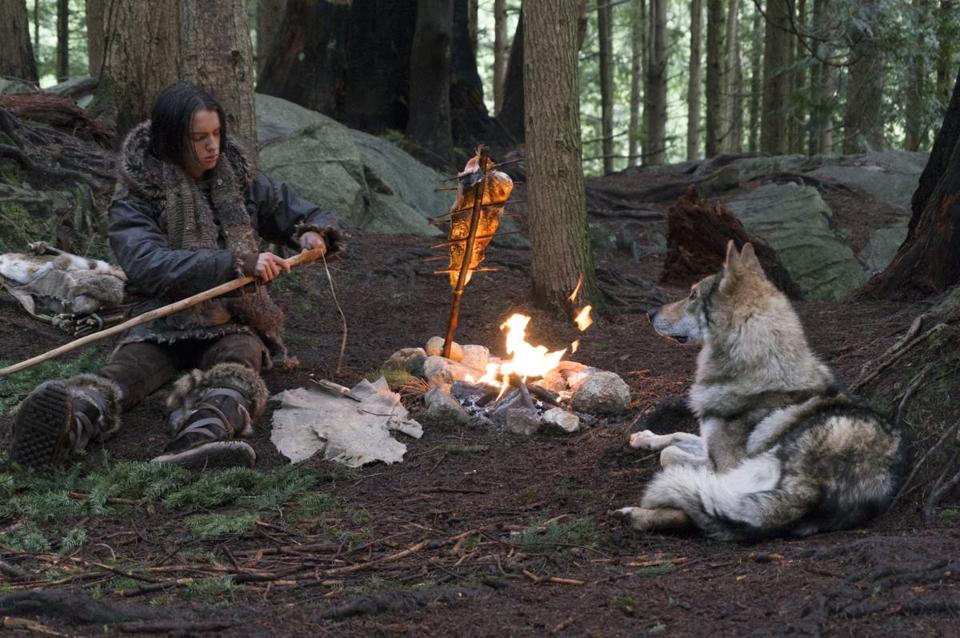The characters speaking this language and executing these maneuvers are playing into instantly recognizable boxes, but as Alpha takes the shape of a founding myth, archetypes are called for. Kodi Smit-McPhee stars as Keda, the son of chief Tau (Johannes Haukur Johannesson), and a rookie hunter on his first expedition. Smit-McPhee has inhabited this kind of role before as a child in The Road, and ten years later, he again is a reticent novice, trained in the ways of the tribe but not certain that he can perform all these tasks out in the field. He elevates this trope by conveying that he is indeed capable and knowledgeable of the tricks of the trade, but he needs that extra bit of luck to carry him through. Early scenes demonstrate that luck is often all that differentiates between life and death, that nothing can be done to stave off a fatal result in such an untamed and dangerous place.
As Keda’s father, Johannesson’s Tau could also revert to tropes and be a harsh taskmaster who demands too much of his son. Instead, Hughes, the actors, and writer Daniele Sebastian Wiedenhaupt create an affecting paternal bond with Keda that runs directly counter to Johannesson’s towering stature. When Keda hesitates to deal the killing blow to a wild boar, he isn’t disciplined by Tau, but this is instead treated as an opportunity for closer teaching and instruction, the exact opposite response expected after decades of harsh masculine figures in film and TV. When Keda is separated from the tribe in the film’s instigating incident, Tau’s grief and desperation at this cruel development again runs counter to expectations. He’s expressive and heartbroken instead of stoic and withdrawn, his keening wails for his son intruding on conversations that other tribesmen are having about what to do next. Alpha continually subverts in this fashion for its thrilling first act, building real people out of its archetypes.
Once Keda is on his own, Hughes gradually runs out of invention when there aren’t any more conversations to have. The journey to the hunting grounds was shown to be perilous with a full complement of hunters, and the return trip, alone and injured, immediately becomes nigh-impossible. Here, Hughes doesn’t surprise in his introduction of Alpha’s hook, as Keda first injures an attacking wolf, and then takes pity on it and nurses it back to health. The film doesn’t lose its epic sweep, but it begins to tick boxes. Here’s the just-in-time rescue, here’s the team-up against a common predator, and here’s the bonding and obedience training.
Though the less-than survival aspect takes up most of Alpha’s runtime, the markedly superior tribal and familial dynamics of the first half hour sustains the film. With the deluge of films whose sole draw is the relationship between dogs and humans, Alpha aims much higher than it needs to, foregrounding the relationships between humans and then making the viewer grateful towards the proto-dog who helps Keda keep that relationship intact, a far more admirable path than showing the invention of fetch, a scene that some producer probably insisted be in the film. Thankfully, Hughes has higher aspirations. B

 RSS Feed
RSS Feed